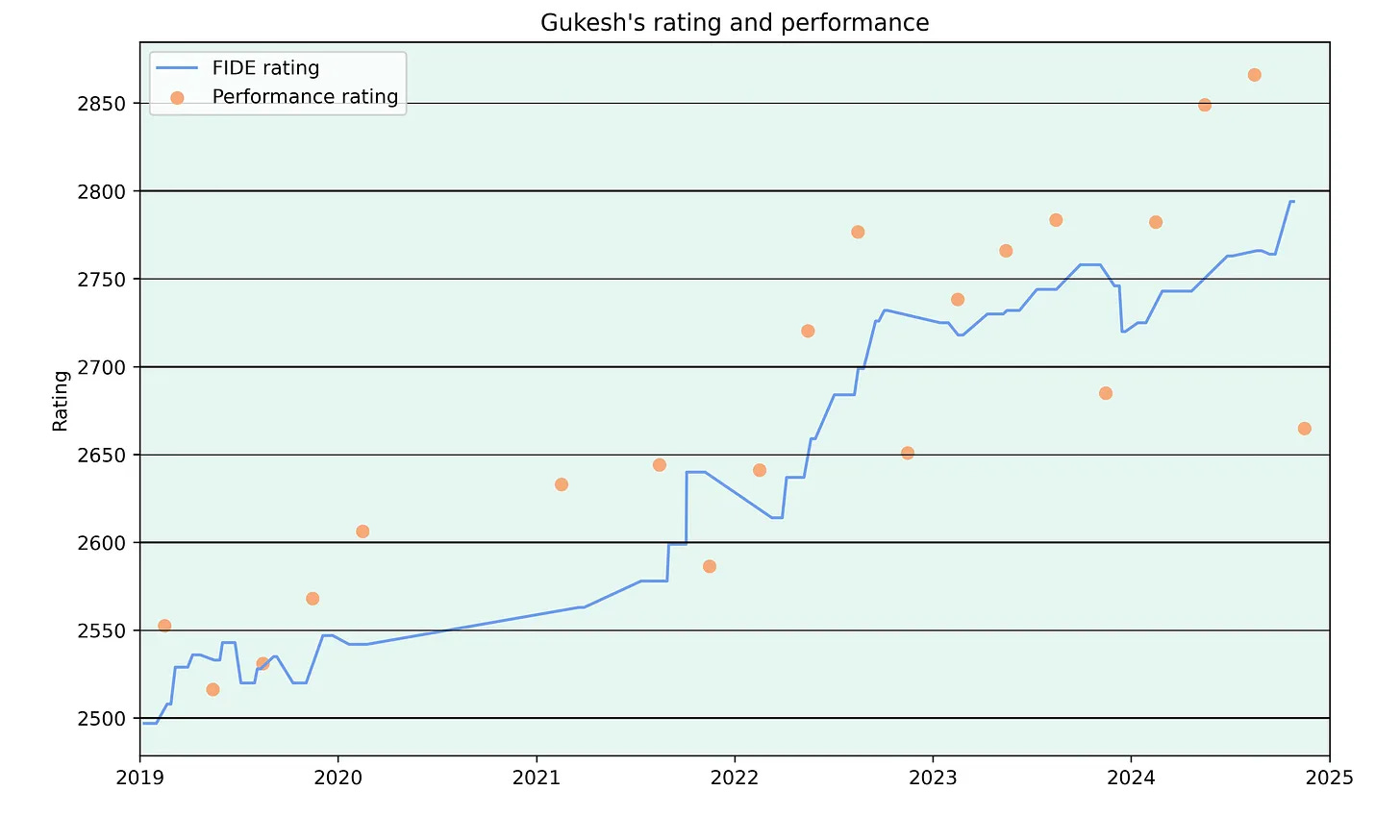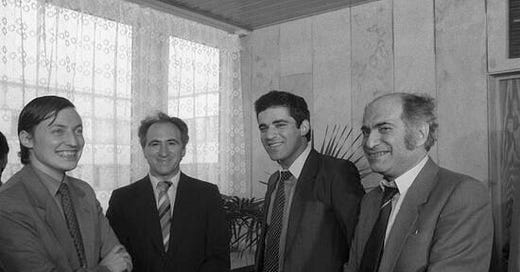Hello again chess-newsletter readers. A few quick things before I get you to this week’s chess stories:
My friends at Chessmood are giving away free one-month memberships to check out their content and community. Chessmood has a massive video library of GM lessons and is building out some pretty cool tools for self-directed study and review. (This is not a paid-ad, but if you use this link and end up signing up for a paid membership, a portion of the revenue would go to support this free newsletter).
Editorial note #1- Next week is Thanksgiving here in the US so there will be no Link fest. Good luck to those of you playing alongside Fabiano in Charlotte, I am saving my “skip out on family events during holiday season” card in order to deploy it to attend the FIDE World Rapid & Blitz in New York City.
Editorial note #2- While I still primarily envision this blog as a repository of worthwhile chess writing, I am going to start including podcasts as well. (Even though podcasts are notoriously “unshareable” because one is often linking to an hour-long interview, and nobody likes getting homework). There are a few reasons for this, but the primary one is that with demise of X/Twitter I am finding fewer ways to (gently) remind people about the latest Perpetual Chess podcast, which is something that I work very hard on, and is my primary job. I will also be sure to highlight other recent chess podcasts that I found particularly insightful.
Without further ado, behold the links:
Chess Improvement
Excellent post from NM Matt Gross on the improving pattern recognition, and the parallels between chess improvement and learning a language. “My feeling is that chess puzzles as they are currently constructed aren’t great for developing pattern recognition.” (MoveLibrary)
TheOnoZone has also been thinking about what % of a study regiment tactics puzzles should be. “Chess is not 99% tactics, but tactics training helps develop important skills that drive chess improvement.” (LiChess Blog)

David Hamm on how he has managed to refine his study regimen. “I am definitely spending much less time doing chess. That said, the time that I do spend on chess is much more focused and productive.” (LiChess Blog)
FM Nate Solon on the importance of “boring calculation.” “I’m coming to believe more and more that most chess games are decided by these kinds of little decisions.” (Zwischenzug)
Books
GM Jacob Aagaard weighs in from Singapore on the World Championship, and also provides some book news, such as the fact that Quality Chess Books are coming to Kindle! (New in Chess Blog)
A few classic chess books, including Zurich 1953, have finally made it to Forward Chess (Sean Marsh for Forward Chess)
The World Championship and Other Chess News
FM Dylan Loeb McLain previewed the World Championship for the New York Times (NY Times)
“Ding is just letting it all out…it could be a healthy thing. There is this culture among the chess players not to show emotions. You’re not supposed to celebrate your victory, you’re not supposed to be angry after a loss, you’re supposed to take it all in and just go back to your room. It’s become kind of a problem because the pressure is growing on younger players and the inability to deal with all these emotions is now catching up with them.” Quote via Gukesh’s trainer, GM Gregory Gajewski in an insightful short feature by Susan Ninan for the Hindustan Times
Magnus beat Fabi in the “Freestyle Chess” Exhibition match in Singapore (NM Anthony Levin for Chess.com)

MVL provides a rundown on his latest tournament in Chennai. “A word about the playing conditions in Chennai, which were very pleasant. There’s a real chess boom in India and it’s really showing, especially in the number of fans attending!” (MVL’s Blog)
Misc.
Jen Shahade on some reasons why women might overperform relative to their ratings in puzzle-solving competitions. (Jennifer’s Substack)

Sam Kahn looks back at at an underappreciated World Championship Match- Alekhine-Boguljubow. “The decision to play the match with Bogoljubow was something of a surprise, but only for personal reasons. Alekhine and Bogoljubow were both difficult people, in different ways, and there was, as Alekhine put it, “an atmosphere of hate” between them whenever they appeared in the same tournaments.” (Chess.com Blog)
Podcasts
This week on The Perpetual Chess Podcast, I interviewed 2023 World Open Champion GM Fidel Corrales Jimenez. I have long wanted to interview him because he has a job and family, yet somehow manages to play a hectic OTB schedule at a consistently high level. According to Fidel, two factors that contribute to his success are: 1. Plenty of soccer/football to build physical endurance 2. An ability to forget bad results, because another tournament is always coming soon. On top of that, the Cuban-born champion has a fascinating life story. As a sports fan, I have noticed that the role players/grinders often give more interesting interviews than the superstars, and I think that may be true in chess as well. (The Perpetual Chess Podcast)
If you are into modern chess history, this interview by Dirk Jan ten Geuzendam with GM Joel Lautier is an absolute must-listen. Joel made it to the pinnacle of the chess world and then quit to pursue a successful career in finance. As he tells Dirk Jan, part of the impetus to quit was seeing what his childhood hero, Bobby Fischer, looked like in his later years. (New in Chess Podcast)
Slightly late on this one, but IMO economist, statistician and GM David Smerdon has the most clear-eyed view of how big of a risk chess cheating actually is. I was very glad that Fabiano and Cristian had him on their wide-reaching podcast. (C-Squared Podcast)
Happy Thanksgiving everyone, this newsletter will return on December 6. - Ben



Thanks for the link to Lautier’s interview!